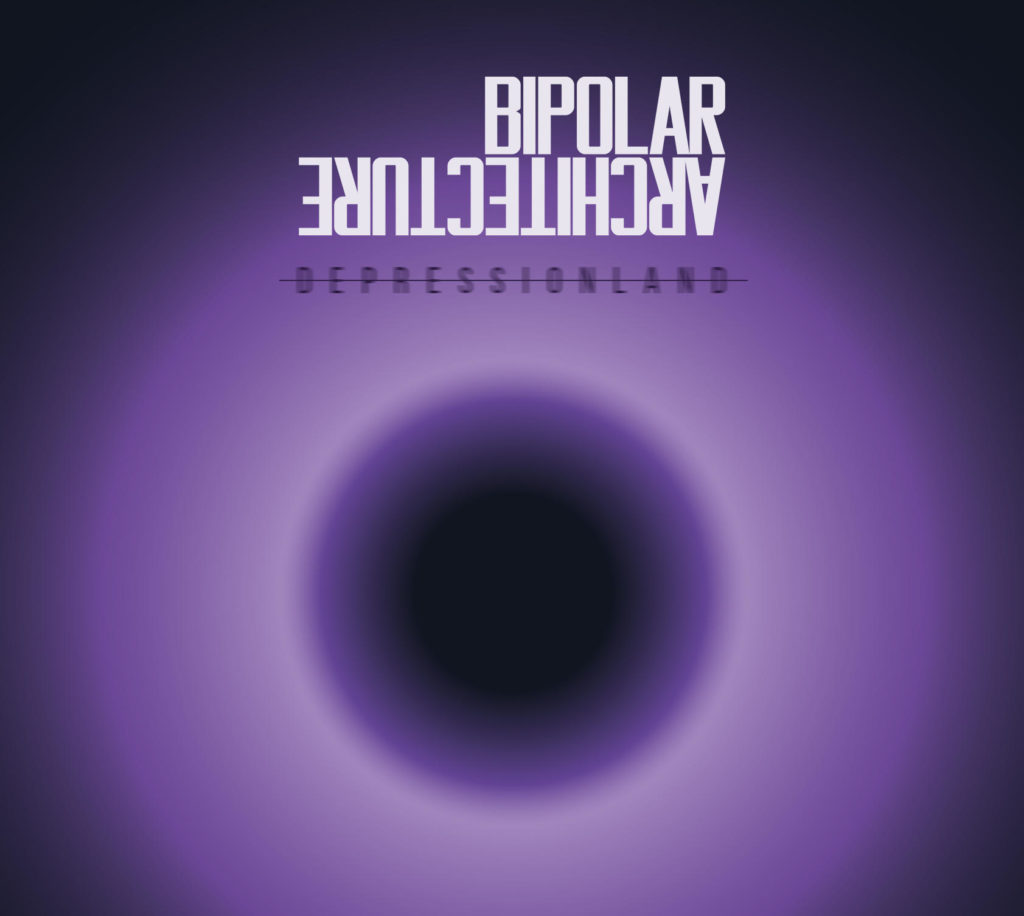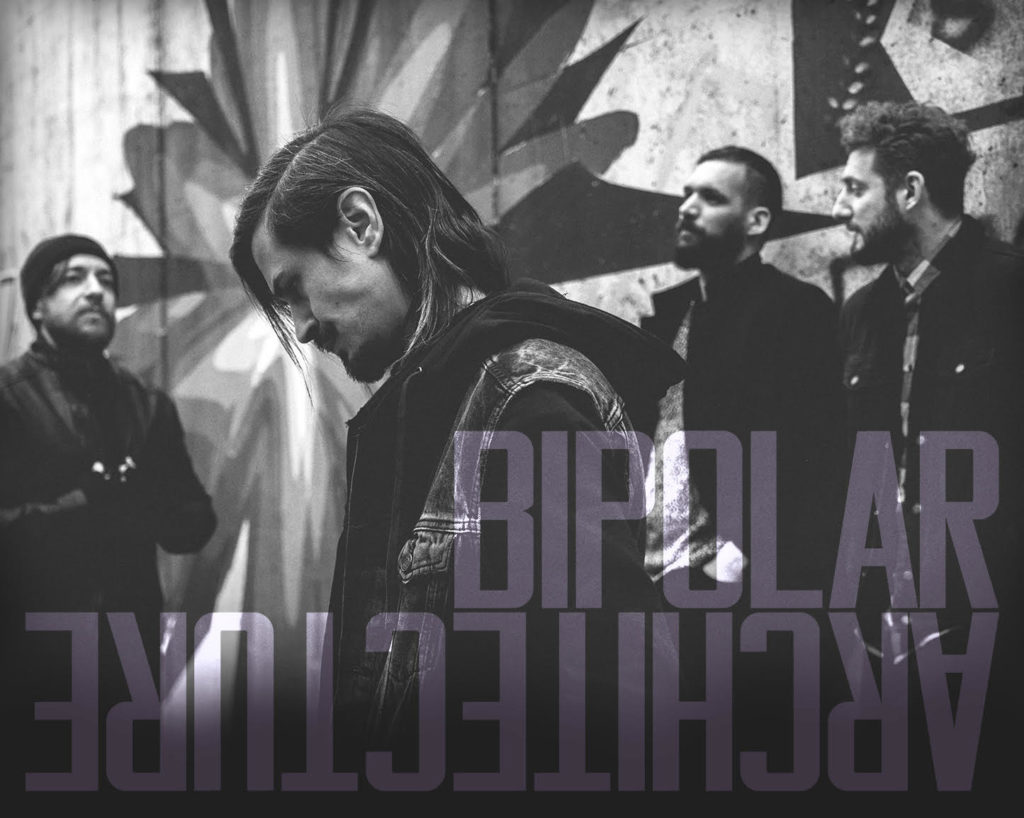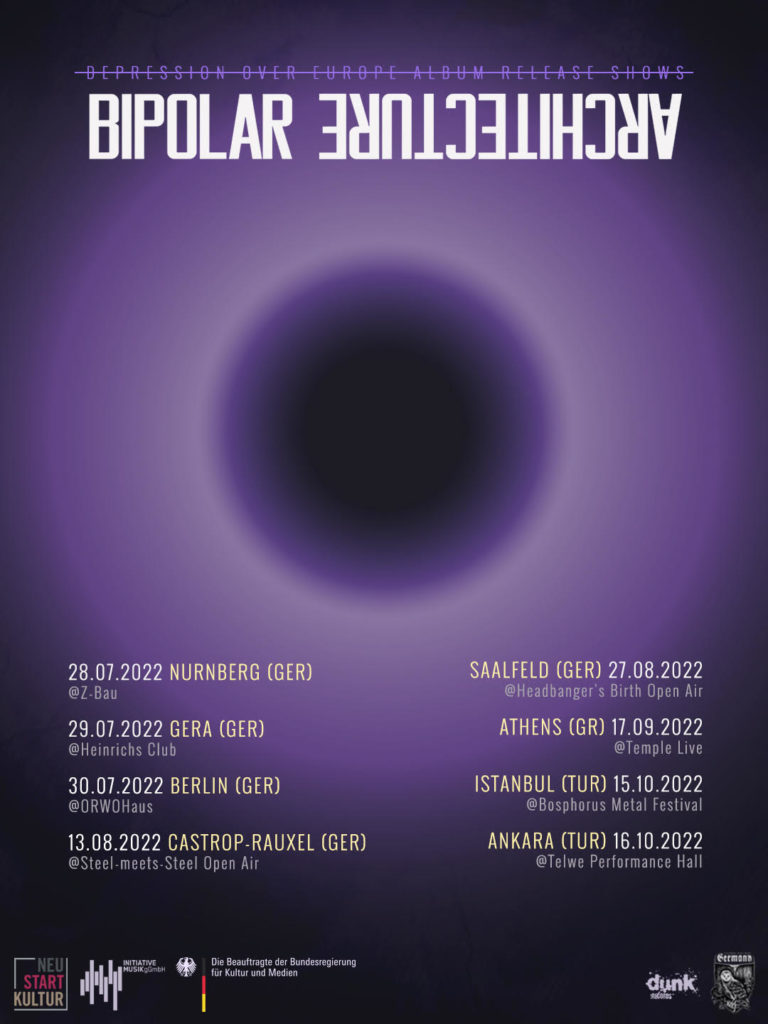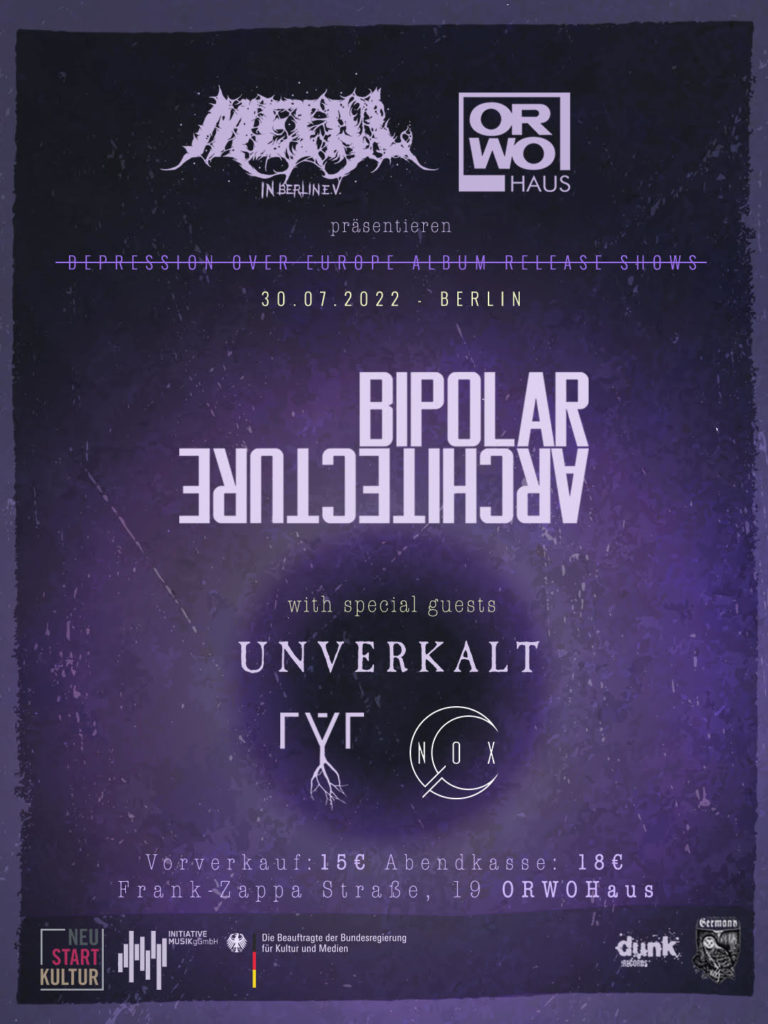Bipolar Architecture founded by Sarp Keski who lives in Berlin(vocals/guitars), Enes Akovalı (bass) and Burak Altıparmak (lead guitars). 2020, with joining of Ata Çetin (drums), line-up’s been completed. Then a change in the lead guitar position and Marcus Sander joins the band.
Bipolar Architecture locates in Berlin (Germany) and Istanbul (Turkey).
Debut 3 song-EP “The Tragic Protagonist” has been self released on May, 2020 in digital platforms such as Spotify, Deezer and Apple Music.
The sound character consists of a lot of genres blended in harmony such as Post-rock, Post-Metal, Blackgaze and Djent influences. Simply Progressive Post-metal.
November 2020, single “Dystopia Is The Reality” will be released.
April 2021, “The Criticizer” was released.
After these releases and recording process in Germany, the band had signed with Talheim Records Germany for the first full length album “Depressionland” digital and CD releases, and with Dunk Records! (Belgium) for the vinyl release. It is set to be released by 24th of June, 2022.
Band’s first tour set to take place on 15-16 January in Turkey.
15th January – Izmir (TUR) – Headliner
16th January – Istanbul (TUR) – w/Harakiri For The Sky
Band Line-Up
Sarp Keski (35) – Vocals / Guitars (Berlin)
Marcus Sander (35) – Lead Guitars (Berlin)
Enes Akovalı – (29) – Bass (Istanbul)
Ata Çetin (28) – Drums (Istanbul)

1- Depressionland (6:06)
2- The Criticizer (6:00)
3- Expectations (6:03)
4- If Words Were Swords (6:28)
5- Dystopia Is the Reality (5:54)
6- Surrealistic Forces (5:24)
7- The Tragic Protagonist (5:15)
8- So I Altered (4:58)
9- Papercuts (6:26)
TOTAL: 52:34
All songs are composed by Sarp Keski (Bipolar Architecture)
Recorded, mixed and mastered by Fabian Hildebrandt (Eisensound Studios – Jena / GERMANY)
Album artwork by Orçun Kocakoç.
After two years spent gradually releasing singles, the Berlin-based Bipolar Architecture are finally ready to unleash their debut record, and we’re excited to partner with them in doing so! Featuring members of the death metal group Heretic Soul, Bipolar Architecture represents a move from the pummeling nihilism of their former band to a style that allows for more variation and nuance without sacrificing the intensity that has driven them to this point. This newly broadened canvas sees them touching down on both post- and prog-metal, with flourishes of djent, black metal, and even spacey post-rock working their way into the mix. The resulting record reveals impressive growth and carefully measured songwriting. Depressionlandtakes the considerable energy and ferocity these performers possess and focuses it in a manner which provides listeners essential moments of respite via spacious soundscapes while still maximizing the impact of its heavier elements.
Even with the band’s commitment to a more layered sound intact, the beating heart of Depressionland remains the raw aggression that has clearly motivated them since their earlier, more extreme musical phases. Post-metal fans will find much to rejoice in here, as most of the songs originate from the seething-menace-foreshadowing-thunderous-eruption template that the genre has long been built on. Putting aside the speed and technicality of death metal in favor of a more deliberate and diversified sound proves an astute adjustment. The widened scope creates a platform where the band can occasionally explore more restrained performance, which in turn opens an avenue for the more extreme moments to hit with even more potency than they would were they being supplied in unceasing waves.
Take, for example, the gradually building opening section of the album-opening title track. The initial slow burn of palm-muted guitars and throbbing toms leads the listener steadily into the first verse, at which point a small handful of straightforward chords can cut right to the listener’s gut, carrying significantly more weight than they might were they lost in a maelstrom of violent riffing. Part of what makes Bipolar Architecture such an exciting band, though, is the way in which they prove unsatisfied simply following a single course. Just around the time that one may be feeling settled into the sturdy mid-tempo of the track’s front half, the band transitions to a higher gear and charges forward at a galloping pace with a passage that leans considerably into the breathless impetus of black metal.
It isn’t the only time they move seamlessly from one stylistic approach to another. “Expectations” begins as something akin to a darkened take on post-rock before moving briefly into an inspired verse that suddenly soars into vigorous incline. Once this feverish segment breaks and releases the song back to a slightly more subdued state, the stage has been set, with everything that follows feeling even more dynamic, including the hastened groove of the track’s djent-laced finale. This is immediately followed by the album’s lone instrumental, “If Words Were Swords,” which sees the band further honing their abundant artistic chemistry, channeling what would typically be narrative-guiding vocal melodies into a series of guitar leads that adeptly assume that role and navigate the song skillfully through all its paces. In some ways it functions as a transitional piece bridging the front and back halves of the record, yet still it presents as a standout composition. This commitment to moment-by-moment craftsmanship carries through each of Depressionland’s nine tracks.
If you’ve been following Bipolar Architecture through the slow unveiling of individual songs during the past two years, you’ll no doubt find your expectations met and even exceeded by Depressionland’s harmonious union of already-released and heretofore-unheard material. If you’re coming to the band for the first time, be ready for a record that satisfies all the familiar post-metal itches while also holding some welcome surprises within its dexterous repertoire of creative resources.
On Socials:
Facebook
Instagram
Bandcamp
Spotify





